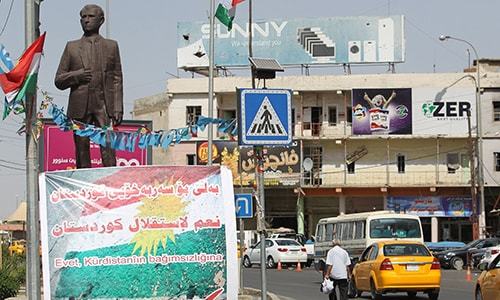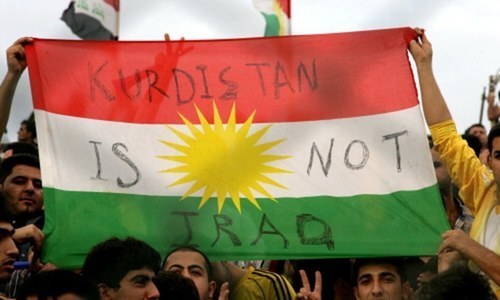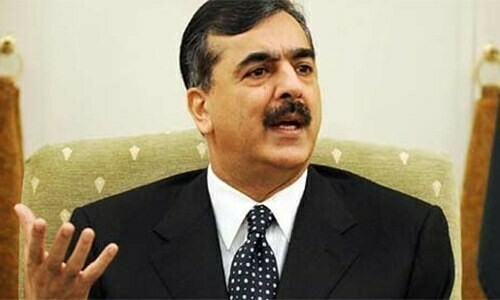ANKARA: The presidents of Iran and Turkey vowed during talks in Tehran on Wednesday to work closely together to prevent the disintegration of Iraq and Syria and to oppose the Iraqi Kurds’ drive for independence.
Shia Iran and mainly Sunni Turkey have traditionally had cool relations but both have been alarmed by the Iraqi Kurds’ vote for independence in a Sept 25 referendum, fearing it will stoke separatism among their own Kurdish populations.
“We want security and stability in the Middle East... The independence referendum in Iraq’s Kurdistan is a sectarian plot by foreign countries and is rejected by Tehran and Ankara,” Iran’s President Hassan Rouhani said, according to state TV.
“We will not accept a change of borders under any circumstances.”
Iran and Turkey have already threatened to join Baghdad in imposing economic sanctions on Iraqi Kurdistan and have launched joint military exercises with Iraqi troops on their borders with the separatist region.
Turkey’s President Tayyip Erdogan, who was on a one-day trip to Tehran, said Ankara was considering taking further measures against Iraqi Kurdistan.
“We have already said we don’t recognise the referendum in northern Iraq... We have taken some measures already with Iran and the Iraqi central government, but stronger steps will be taken,” he said.
Iraq’s autonomous Kurdistan region announced on Tuesday it was calling presidential and parliamentary elections for Nov 1. Baghdad has responded with further punitive measures.
Iraq’s central government, its neighbours and Western powers fear the vote in favour of secession could spark another, wider conflict in the Middle East region to add to the war in Syria, and fear it could derail the fight against the militant Islamic State group.
Published in Dawn, October 5th, 2017














































